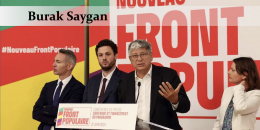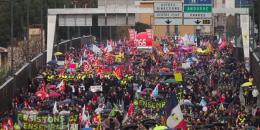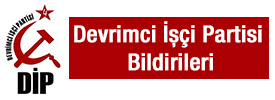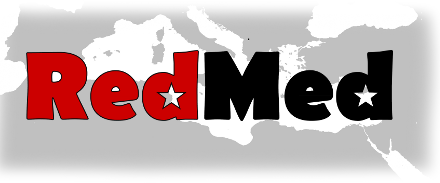La France en sursis or France on borrowed time
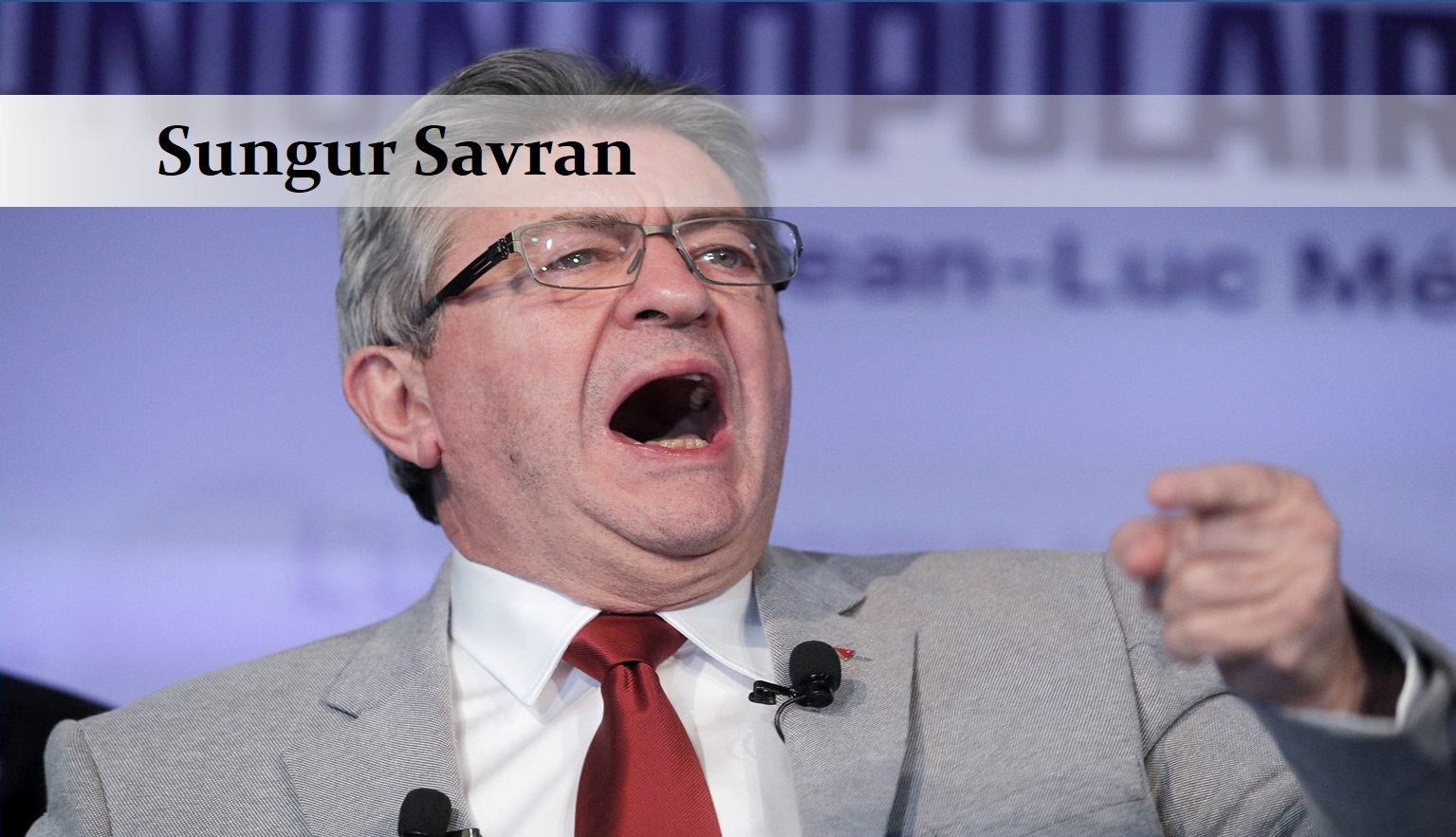
The parliamentary elections in France ended up surprising the entire world. One French commentator said, “the most surprising election results in the entire history of France”. Before the second round, everyone was speculating whether the proto-fascist Rassemblement National (RN – National Rally) of the pair Marine Le Pen-Jordan Bardella would achieve an absolute majority or simply a plurality in parliament. The RN came out third (143 seats)! The prize of first place went to the Nouveau Front Populaire (New Popular Front, henceforth “the Front”), which got 182 elected. The Ensemble alliance (Together) led by Macron’s Renaissance came second with 168 MP’s.
We need to add to these three major blocs the 46 deputies won by Les Républicains (LR – Republicans), a party that has its lineage in the Gaullist tradition and is generally considered to be “centre-right”. The reader may remember that Eric Ciotti, the chairman of the party before the general elections had declared the party was to join an alliance with Marine Le Pen’s party after the latter’s resounding victory in the elections to the European Parliament on 9 June. The conclusion was generally drawn that, after Italy and Spain and the Nordic countries of Sweden and Finland, the cordon sanitaire around the proto-fascist movement, which implied the isolation of the fascists even by the most conservative parties of the centre-right, was collapsing in France as well. However, this abrupt turn by Ciotti was disowned by what now turns out to be a majority in his party. The party was practically divided and it seem that a majority of its electorate stuck with the cordon sanitaire. Thanks to this LR obtained 46 seats in parliament, although Ciotti and his co-thinkers went ahead and allied with the RN.
Had the RN received an absolute majority, Jordan Bardella, the 28-year-old up-and-coming new leader of the movement, would have taken the seat of the prime minister. Now the prime minister to be named is anyone’s guess. Of course, in the semi-presidential system of the Fifth Republic established by de Gaulle in 1958, it is Macron who will appoint the PM, but he simply does not have a free hand in making the selection since the new PM needs a vote of confidence from parliament to rule the country. Divided into three blocs of roughly similar clout, France faces a situation of uncertainty for the near future. Many are speaking of “ungovernability”. Attention: we say “uncertainty for the near future”. The reason for this qualification will become apparent at the end of the article. France is now living on borrowed time.
Why the surprise?
If the pundits say “great surprise”, it must be a great surprise. They know best. But if one delves into a concrete analysis of the concrete situation, one should really be talking about not a bolt out of the blue, but a definite consequence of the electoral system adopted by the country. Electoral systems mark the political party system of every country. Take the “first-past-the post” system in the British electoral setup. What happens is that the system favours the biggest parties (usually two) and works to the detriment of smaller and/or new parties. The reason is simple: smaller and less-heard-of parties can only receive so much in each constituency. The votes they receive are not added up in larger constituencies and thus are wasted. In a party-dominated proportional system, if a party receives, say, 15 per cent of the vote, it will obtain an approximately similar percentage of seats in parliament. But in Britain the new party of Nigel Farage, the rabidly racist Brexit architect Trump-buddy, received 14 per cent of the vote and obtained only 4 seats out of a total 650.
As for France’s two-round system, this encourages the practice of fine-tuning voting behaviour in the second round and the formation of alliances either in selected constituencies or at the country-level. The system is such that any candidate that receives a minimum of 12.5 per cent in the first round is eligible to run in the second as well. But more often than not, those who do not see the possibility of coming on top in the second round withdraw (called désistement) from the elections in favour of that candidate who is closer to them politically. Ideologically rigid parties are thus at a disadvantage, since other parties’ supporters will generally refrain from voting for them. And since this clustering of votes in the second round has become part of the political DNA of France, the practice of forming political alliances even before the first round is common practice.
Both things happened in France this time around. Before the elections, given the threat of the fascists taking control of the government, four left-wing parties agreed to set up an electoral front in less than 24 hours. With a single common candidate in each constituency (with some exceptional cases where there were frictions between candidates and their parties), the New Popular Front gathered enough strength to become the second biggest force on the political scene (immediately behind the 33.5 per cent received by the RN in the first round, the Front came in second with close to 29 per cent). Then came the second round, setting off the other mechanism indicated above: the four parties did not vote only for the candidates of the Front itself in the second round. In many constituencies, Macronist and Front candidates, despite having received more than 12.5 per cent of the popular vote in the first round and therefore having attained the threshold necessary to run in the second round withdrew from the race in favour of the candidate of the opposite alliance in order to beat the candidate of the proto-fascist party. The Macron-led alliance withdrew 80 candidates and the Front 134. Taking into consideration the total number of constituencies across France, which is 577, the total of 214 withdrawals is a very substantial figure.
That this kind of electoral behaviour must have required a serious soul-searching on the part of the respective voters of each bloc requires no explanation. Let us consider the question from the point of view of the firm supporters of the Front. Starting from La France Insoumise (LFI – France Unbowed), which without any doubt is the party most leftward among the four, and going from left to right, the electorate of the French Communist Party, the Greens, and the Socialist Party (with respect to the last three we are talking more of the voters than the leaders) would vote for the alliance that represents the arrogant “president of the rich” only in self-abnegation. Inversely, it would certainly be very difficult for ardent partisans of Macron to vote for a Popular Front with the LFI a distinct voice inside.
Now add to this the electorate of the LR, important because it managed to get 46 candidates elected. These are people who regularly go to church on Sunday, change sidewalks when they see gay and trans people approaching, loathe destitute immigrants, and viscerally hate the left. And whatever they are so is their preferred party. The sources we have seen and listened to did not make clear whether there was désistement between some LR candidates and some Front ones. We are just reminding the reader how difficult is the choice of “withdrawal in favour” for millions of voters.
Hence the political choice of overcoming such aversion is the explanation behind the surprise of the second tour. What prevented proto-fascism from rising to power was the fact that this “united front of people who voted holding their nose” was possible because of the fascist threat.
How did the left manage to come first?
We have explained the surprise. We have thus explained why Marine Le Pen’s party was unable to grab power. But there is still something else that needs explaining: What are the reasons that led the left to win so big? What is the source of this (seemingly) “sudden” rise of the left in a country where fascism has been on a steady course of ascendance for years and years? And, intimately tied to this, what does this strength augur for the future?
There is a plain answer to the first question: since 2016, France has been the country of Europe which has been the scene of the highest level of class struggles. It was thanks to this that the left proved capable of establishing a front that won the elections. Bourgeois pundits and the post-Leninist intellectuals that act as a mirror image on the left for them did not only hide the rise of fascism (proto-fascism) in Europe from the masses under the appellation of “populism”. They also disregarded the remarkable rise and obstinacy of class struggles in France all throughout. Those who follow the footsteps of postmodernist thinkers, the left-wing liberals, and the post-Leninists as their guide have, thereby, agreed to live in a twilight zone where class struggles are deliberately hidden from view.
This cycle of tough class struggles started when François Hollande, a Socialist Party stalwart then president of the republic, brought a new Labour Code on the agenda, later famed under the name the Khomry Law, after the Minister of Labour. Our international current emphasized the utmost importance of the struggles waged over this law. In an article published in Revolutionary Marxism 2017, our comrade Savas Mikhail-Matsas presciently called that period the “Paris spring”. As a result of the series of actions during this first round of struggles, during the presidential election of 2017, when Macron stood face to face with Marine Le Pen on the second round, two thirds of the working-class voters kept away from the polling booth.
This was later followed in 2018-2019 by the convulsions of the movement called the Yellow Vests, which brought together in common grievance the poorer layers of the petty bourgeoisie and the unorganized sections of the working class. Between 2019 and 2023, there were again a whole lot of strikes and actions that kept class struggle on top of the agenda in France, the most vociferous being the rail strikes regarding the special pension scheme of that category of workers. Then came the series of active general strikes that brought hundreds of thousands, even millions of workers and toilers of other categories on the squares and streets of France during the spring of 2023. The long article that we penned at the end of this movement in Turkish, whose title may be freely translated into English as “22 Theses on the Struggle Over the Pensions Law” gave a detailed analysis of how this concatenation of struggles and actions that started in 2016 catapulted France to the centre of the class struggle scene of the entire European continent.
Almost immediately on the heels of this big mass movement came a very different explosion. Upon the cold-blooded shooting of a young boy named Nahel of Arab origin by a police officer, the poor neighbourhoods of France from Paris to Lyon and from the North region to Marseilles erupted in anger, young boys, even children burning, overturning and pillaging whatever could be found in the public place. Our comrade Hasan Refik painstakingly analysed, in a series of articles (in Turkish), this very significant social movement and the failure of the French left, including its more revolutionary tendencies, to relate to these future proletarians.
We can, then, reach, without any qualms, the following crystal-clear conclusion: behind the formation of an electoral front in rapid reaction to the announcement of snap elections by Macron and, even more importantly, behind the brilliant success of this front at the elections lies the almost incessant action of the masses in “rounds” (this time of practical street fighting!) of different causes in rapid succession over an entire historical period that has lasted close to a decade, not only of the working class but also other layers such as public employees, the poorer sections of the petty-bourgeoisie living in the so-called périurbain towns and cities, the inhabitants of the dilapidated neighbourhoods around big cities, proletarians and semi-proletarians of immigrant origins, students, intellectuals, fighting women, and even sections of the modern petty-bourgeoisie and the well-educated semi-proletarian layers.
So, after all is said and done, this is not a momentary flickering of a reaction to the immediate threat from fascism that the people demonstrate electorally. It is the result of long struggles having formed a certain state of mind and a certain political consciousness in great masses of people. What has provisionally barred the route to fascism’s rise to power is not simply an electoral process. It is the cumulative result of the actions and the perseverance of the workers and toilers of France.
Who cannot and who can be named prime minister?
The fact that, in the semi-presidential system of the 5th Republic, the head of the executive (in other words, the president of the republic) and the legislative body (that is to say parliament, which is authorized to vote or not its confidence in the prime minister and the government) are elected in separate elections and sometimes at considerably different times, sometimes creates situations in which the president and the prime minister are from different parties or even different political camps. The French have named such situations “cohabitation”. This is very different from a coalition as one cannot even choose who to partner with. This time around, too, such a situation is the most likely outcome. If Macron were to name one from his own alliance as prime minister, this would be against all the protocols of a parliamentary system and would create a backlash that would bounce the prime minister chosen at the first vote of confidence. The spokespeople of the Front have made it perfectly clear that they expect the office of prime minister to be turned over to one from their ranks. Not only that but Marine Tondelier, the head of the Greens and the namesake of Marine Le Pen, has raised the bar by saying that Macron needs to name the person proposed officially by the Front to him, thus even denying the president of the republic the privilege of choosing his own prime minister by name. This way or that, in public discussion or behind closed doors, the name to be first nominated has to be, it transpires, a member of the Front. This, naturally, on condition that the Front does not disintegrate or suffer a scission during the process of naming its own candidate for prime minister!
It would be useful to delve a bit deeper into this matter at this early stage on the basis of two extreme cases. The careful reader will have noted that the title of this section is not ordered in the usual succession of “who can and who cannot?”, but is formulated as “who cannot and who can be named prime minister?” This is because the truth of the matter is such that the essence of the question of the candidate to be named by the Front is this: whether Jean-Luc Mélenchon, the historic leader of France Unbowed, will be or will not be named as prime minister. This is the question that may tear the Front apart. This is the question that Macron will try to exploit to the full.
Why is this the case? Because Mélenchon is a radical reformist that is a nightmare for the French bourgeoisie. The true reason of why the spokespeople of the establishment, from Macron personally all the way to the mainstream media, set up the bogus of the “far left” in opposition to the “far right” of the RN is Mélenchon. Let us repeat what we had written in the past: two of the parties in the Front have nothing to do with the working class and toilers. The Socialist Party, the organizational avatar of the historic social democracy of France, no longer has the working class among its choice audience, has gone through a thorough process of embourgeoisement, and is a perfectly normal bourgeois party that has no other insignia of “progressiveness” other than its forward-looking outlook in socio-cultural matters such as the question of gay and trans people, what the French call “marriage for all”, ecological sensibilities, secular education, etc.). Its foremost clientele comes from the modern petty-bourgeoisie and the highly educated semi-proletariat. The Greens, on the other hand, have never been a working-class party. They are based on the same layers as the socialist party, garnering some support from the more well-to-do peasantry. They are in fact no more than a party of the rich petty-bourgeoisie that attribute great priority to a “green transition”.
Of the two remaining parties, one, the French Communist Party, was the major party of the working class throughout the 20th century. In the long-drawn-out process of the dissolution of Stalinism, it went through ups and downs, coquetted with Euro-communism for a time, but in the end retrenched back to its long-established status of national (and nationalist) corporatist workers party and, as opposed to its Italian and Spanish namesakes, is still well-established in a number of working-class districts, constantly diminishing in number year by year, where it has its real base of power. Nonetheless, its present chairman Fabien Roussel is pursuing a catastrophically right-wing political line and has acted in outright reactionary manner towards the end of the high wind of struggle against the pensions law.
The French bourgeoisie certainly does not have an overall outlook that would characterise these parties as “extreme left”. In fact, the Socialist Party, the biggest of the three, has served the interests of the bourgeoisie when in power throughout the last four decades, that is since François Mitterrand captured the presidency in 1981 and remained in the Elysée for 14 years. This party is perhaps not the priority preference of the bourgeoisie, but nonetheless one in which it lays its confidence. What is “extreme” is the LFI, led in charismatic fashion by Mélenchon. We have already drawn a picture of Mélenchon for foreign audiences in our piece titled “22 Theses”. It would be best to recapitulate that passage here as well:
“The LFI is a reformist party with French-nationalist leanings, a party that never carries out socialist propaganda, a party that, as its programme, advocates the transition to a 6th Republic in lieu of the Gaullist 5th Republic, which, it says, has been exhausted. Revolutionary Marxists should not have the slightest illusion in this party. But certain characteristics of the party make it an interesting case. The fact that Mélenchon broke from the Socialist Party precisely as that party was going through its process of embourgeoisement is in itself a fact of great importance. The further fact that the LFI defends an independence of action vis-à-vis both European imperialism (the EU) and NATO and should threaten a break from the former in terms of economic policy and from the latter in terms of foreign policy is deeply significant, given the nature of the period we are going through (economic depression and threat of world war). Equally significant is the originality of the specific sections of the population that LFI can speak to and convince. First, the LFI is able to bring back to the left the vote of the working class and the poor, who have turned their face, in despair and disgust with other components of the institutional left, to the fascists who speak and act as advocates of the workers. Secondly, and even more exceptionally, it strives to protect the sections of the working class that has its origins in immigration in the face of the racism and violence meted out to them by the so-called security policy of Gérard Darmanin, the Minister of the Interior of Macron, this in contradistinction even to some working-class parties of Revolutionary Marxist orientation. It has been rewarded by a high proportion of the vote of these sectors of society, even within what are considered sociologically conservative Muslim neighbourhoods. (The same goes for the overseas colonial possessions of France in the Carribean and Pacific regions.) [In the last elections, the LFI had deputies elected in five of the seven constituencies on the island colony of Réunion.] Moreover, the LFI has taken the initiative of forming, in the aftermath of the elections [i.e. the 2022 presidential election] the remarkable initiative of forming a union of left forces, the so-called New United Front of Ecological and Social Forces – NUPES in its French initials. This union of forces has, alongside the power that it has vested in the left during the debate on the pensions law in parliament, also prevented the more compromising forces such as the Socialist Party or the Greens from tying up with Macron and his cohort. The MPs of the LFI have also acted energetically in the great mass mobilisations.”
In this sense, the debate on the name of the prime minister is, first and foremost, a debate on Mélenchon’s name. Mélenchon is the leader on the left most familiar to the masses of the people. He won a great success in the last presidential election of 2022, where he came in third, only slightly behind Marine Le Pen, and thus was almost going to run against Macron in the second round. He has a political style and the skills of an excellent orator that captivate the crowds. And he is the undisputed historic leader of the biggest of all parties of the left. Although in the recent election the Socialist Party almost doubled the number of its MPs relative to the 2022 elections for the legislative, LFI is still the biggest party on the left. Remember that the New Popular Front claims that the office of prime minister should go to itself simply because it is the biggest of the three blocs in parliament. By the same token, it may be argued by the LFI that its leader Mélenchon should become prime minister because it is the biggest of parties in the Front.
But it is almost a certainty that Mélenchon will be vetoed by the other parties. Why? Because in the eyes of the bourgeoisie, he is anti-Semitic for the simple reason that he defends Palestine unconditionally. Because he does not toe the NATO line on the question of Ukraine. Because if the bureaucracy of the EU (“Brussels”) forces France to apply a policy of austerity and unemployment (since France has yawning budget and foreign deficits), Mélenchon may choose to ignore its prescriptions. Because a government headed by Mélenchon will fight to at least cut the pensions law to size. Because the minimum wage will be raised. In short, the French bourgeoisie is terrified that Mélenchon will spoil the rules of the game. Of course, as the leader of a reformist party, Mélenchon may refrain from doing all of this. But terrified at this stage the bourgeoisie is.
So, it cannot be Mélenchon. Who can it be? We think the best choice for Macron and the bourgeoisie is the former president of the republic François Hollande. We have already had occasion to point out that the present cycle of the high level of class struggles had started in 2016 precisely under the presidency of this Socialist Party stalwart. This man is a serviteur de l’Etat as the French expression goes, a servant of the state. It was this very Hollande who, back in 2016-2017, pulled Macron out of his relatively obscure position as his own counsellor, packaged him and sold him as a présidentiable candidate. Having then withdrawn from public life and occupying himself with writing uninteresting books since 2017, he has now made a comeback, being elected to parliament. He enjoys little sympathy on the left after all he did during his presidential term, but precisely for the same reason he is a good candidate now for prime minister. He may enjoy the rent of “experienced statesman” that can serve many purposes in crisis times. He was probably encouraged in underhanded fashion regarding his unexpected comeback to political life. The fact that Hollande will be palatable to all wings of the bourgeoisie (except the partisans of Marine Le Pen) is a very strong advantage that can be played in his favour in these times of “ungovernability”.
Hence, at one “extreme” is Mélenchon, addressing the concerns of the popular masses and at the other extreme is Hollande, who has proved his loyalty to the ruling classes. France is now a laboratory case in front of our very eyes. Let us lend an ear, let us follow carefully how this drama unfolds. We will learn so much whatever country we ourselves are struggling in.
The “alliance of dishonour”
Marine Le Pen’s dauphin Jordan Bardella did not (or perhaps could not) hide his rage on the night of the second round. That he should be deprived of taking over as prime minister at the precocious age of 28 and his party should miss the prize that he surely believed it fully deserved he attributed to the formation of what he called the “alliance of dishonour” (“alliance du déshonneur”) against the RN. What did he mean by this?
We now hold the key to this characterisation. It is the formation of what we have called the “front of those who voted holding their noses” that the true parties of the bourgeoisie (Ensemble and Les Républicains) established with the Front, hence with even Mélenchon, in order to bar the way to the Rassemblement National. It is this collaboration that Bardella characterises as a “alliance of dishonour”. He is thereby informing against Macron and the LR to MEDEF, the flagship organization of French finance capital. He is implying that in order to stop the RN, these dishonourable gentlemen and ladies have allied with the “extreme left”. The weapon Macron used to no avail before the first round, declaring the Front to be the “far left”, is now turning against him! According to Bardella, he has been caught red-handed, scheming with what he himself has labelled the “extreme left”!
A warning against unwarranted complacency
We understand very well those who are happy that France has not been taken over by fascism. We of course share that same happiness. But we do not share the feeling of great contentment because the New Popular Front won. Beware the illusion that fascism can be fought against effectively through elections, and in particular, by the motley forces that form the New Popular Front!
First a bit of history. The New Popular Front (NPF) is being presented by its architects as the second edition of the original Popular Front of the 1930s in France (the word “new” comes precisely from this reference to the original experience). When in Germany the policy of hostility to social democracy pursued by the Stalinist Communist Party of Germany played into the hands of Hitler, who rose to power easily as a result of this division of the organized forces of the working class, an atmosphere of call for working-class unity was born in France (in complete consonance with the perspective of the Workers’ United Front advocated by Trotsky years before the rise of Hitler to power). But the concrete Popular Front that was established included one of the “progressive” historic parties of the French bourgeoisie, the Radical Party, which deprived the front of its class character of a workers’ front. The aim of both the leader of French social democracy, Léon Blum, and the leadership of the Stalinist French Communist Party was to avoid the transformation of the active struggle of the workers against fascism into a revolutionary crisis. The Radical Party was, thus, an excuse for keeping the struggle within the limits of the established capitalist order. The Popular Front won the elections in 1936. Only a month had passed by when a generals strike the like of which had never been seen before in the entire history of capitalism broke out. The leaders of the Popular Front made sure that this gigantic powerful strike did not turn into a revolution. It took only four years for the pro-Nazi Vichy Regime of Field Marshall Pétain to take control of France.
The New Popular Front is no better. It bears the characteristics of a political instrument that will exhaust the potentialities of the power accumulated over the years since 2016 by the French working class. What has been explained above makes it clear that the majority of the New Popular Front is readying to come to terms with Macronism. Mélenchon will not be allowed to rule. If he is, then the reader may safely assume that Mélenchon has decided to play the “wise man” in his “senior citizen” age and has extended guarantees to the appropriate representatives of the ruling class that he will refrain from all radical course. But this is highly unlikely. The odds are high that Macron will divide the Popular Front and form a coalition or at least a “cohabitation” arrangement with the Socialist Party. Perhaps he may go further and effect a coup d’Etat, so to speak, within the LFI to ally with the opposition within that party also. But in any case, the future lies in an alliance of the “unextreme left”, so to speak, and Macronism. We had written in between the two rounds of the 2017 presidential elections thus:
“If Macron wins the second round, all the conditions will be prepared for the victory of Marine Le Pen in the 2022 elections. The return match will thus be very dangerous.”
The return match was postponed only for two years, until 2024. In 2022, Marine Le Pen received a very high share of the vote (42 per cent) in the tête-a-tête of the second round, but was not able to beat Macron. However, in 2024 her party became the most popular party of France in two successive elections. The Rassemblement National will grow as long as Macronism rules. Bigger swathes of the popular classes in poverty will be captivated by the demagogic racistic “solution” offered by fascism to their ills.
Only a united fighting front of the organised forces of the working class can lead a successful struggle against fascism. This simply cannot be done with parties like the Socialist Party or the Greens.
“Our victory has only been postponed”
Ever since Bardella rose as a star on the horizon of the RN, Marine le Pen is able at times to delegate the uttering of poisonous words to him and herself to act as a “wise woman”. On that same night when Bardella spoke bitterly of the “front of dishonour” Marine Le Pen pronounced the following serene words:
“The tide is continuing to rise. Our victory has only been postponed.”
C’est ça, la France en sursis. This is France on borrowed time. Let no one bring down their guard.
8 July 2024, Monday







